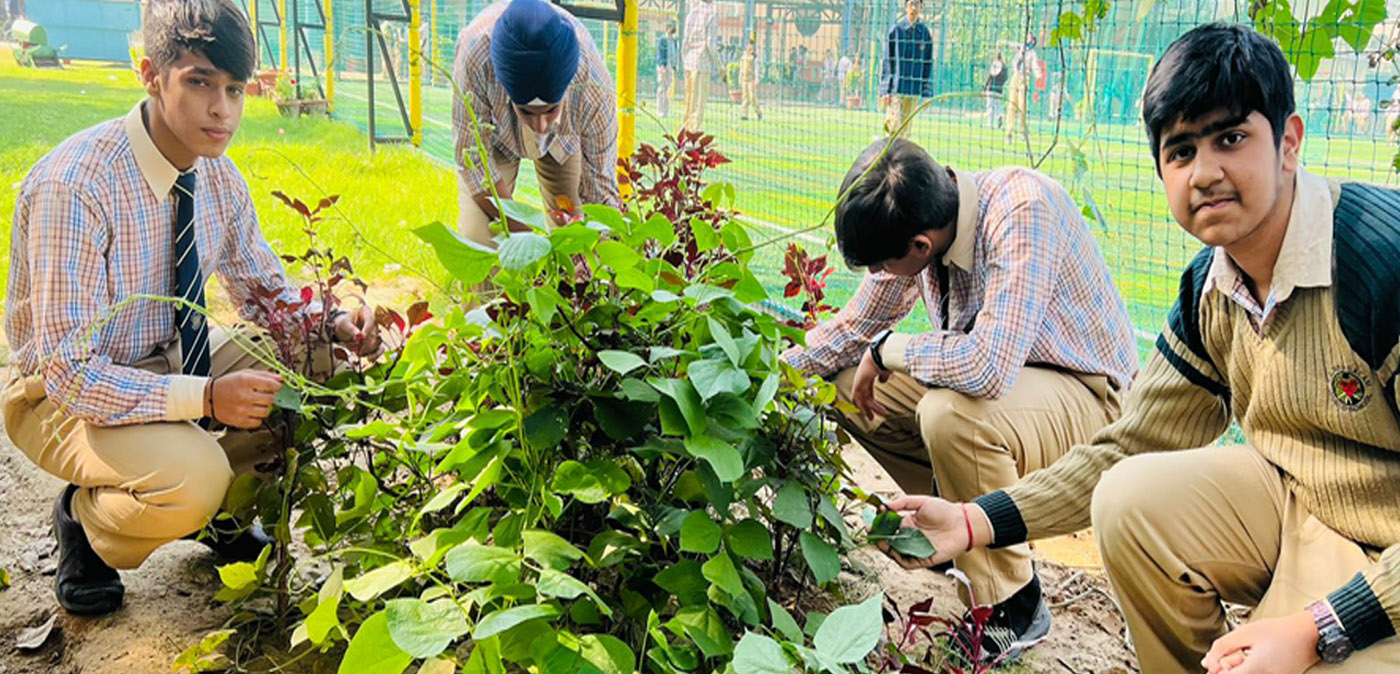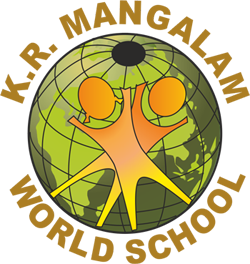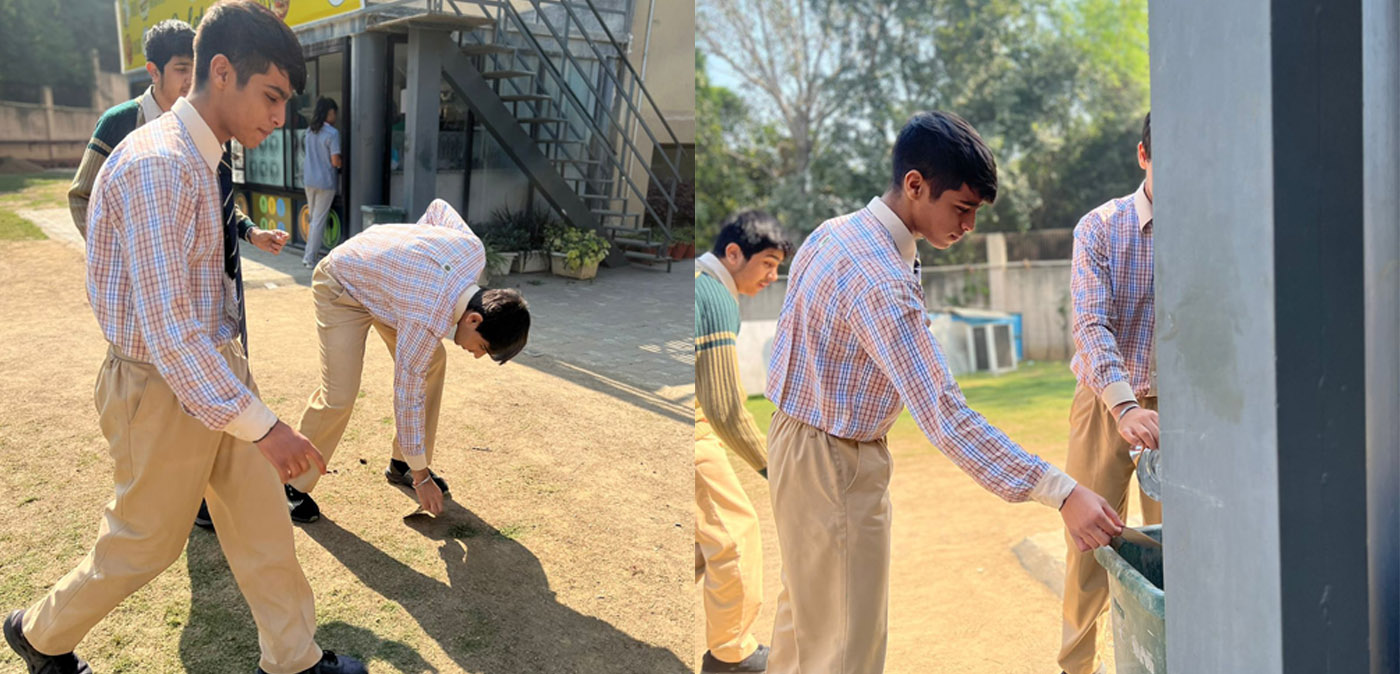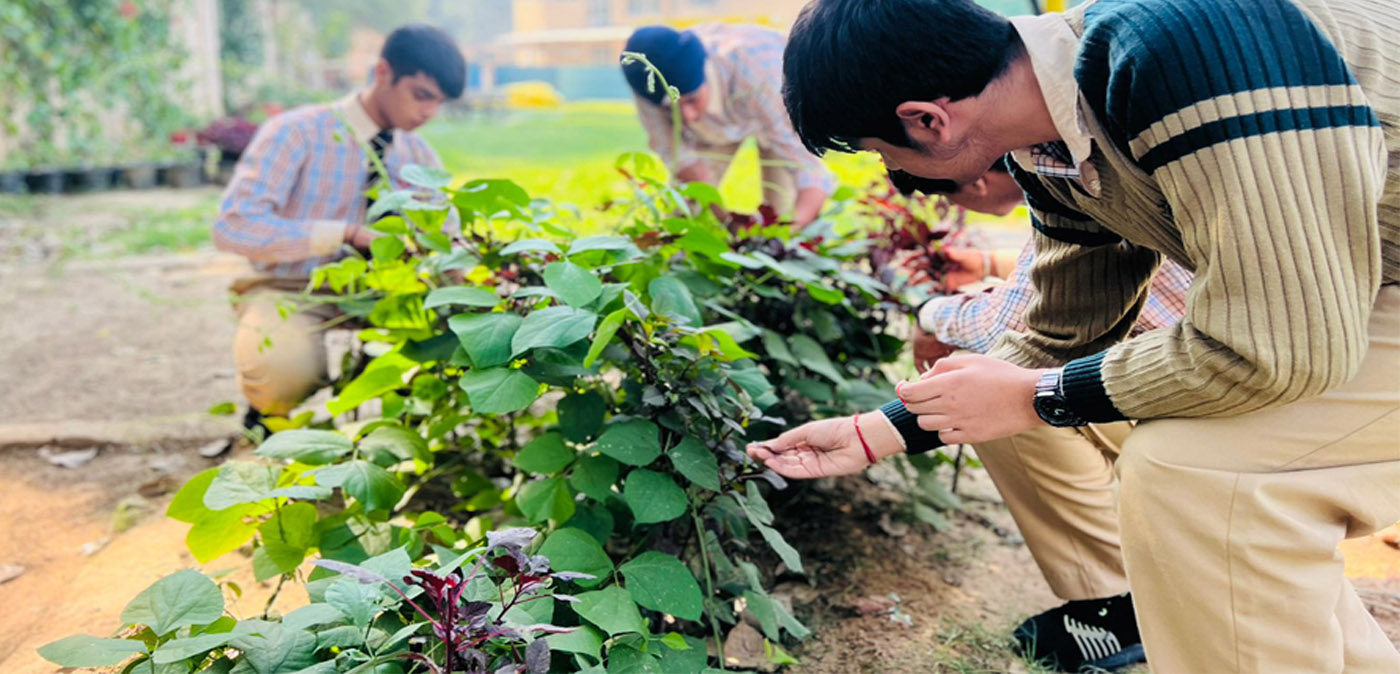
SEWA (Social Empowerment through Work Education and Action)
SEWA aims to develop a whole person in their intellectual, personal, social, emotional and social growth. Students at KRM are prepared to be life-long learners through experiential learning so that they develop as active citizens and caring and compassionate humans. The experiential and constructive modes of learning emphasize the immediate personal experience of the learner and view learning as a process. SEWA takes learning beyond the walls of the classroom and sometimes even beyond the boundaries of the school, building bridges with the authentic and real world in meaningful and positive ways. There are various learning strategies like — discussions, demonstrations, and participatory exercises — are designed to meet the needs of the students at KRM while being sensitive to specific role in the family and community.
Curriculum reform is a global issue and drives education policy directives around the world. The broad framework is usually provided by a national apex body, the narrower focus is around the syllabi based on the disciplines and the learning outcomes expected at age appropriate levels.
There is an urgent need to foster strong mental and social health amongst today’s children so that they can connect with their peers, their elders, the community, the environment, etc. The main objective of the SEWA projects is to direct children’s mind in constructive activities with positive outcomes through the facilitation of creative and critical thinking. This would help them to develop self-confidence and self-esteem. Another objective of this programme is to underline the significance of the interdependence of all human beings and our dependence on the environment in this shrinking global village. Students must acknowledge that they have a responsibility towards the less privileged, the disadvantaged, the society and the environment. The principle of giving to society has to become second nature to them.
The following maybe noted with regard to SEWA:
This aspect aims to focus on the mental/emotional and social health of the child. All students of classes IX to XII (for XII, only till end of the first semester/ term) participated in SEWA program. SEWA is all about social or community service; it can include environmental, civic responsibilities or democracy or health and fitness related projects, international and other projects too, as long as the project is able to connect the child to his surroundings or to a cause, and is able to generate a sense of responsibility towards it (even if it is towards health and fitness of the class itself). The Social Empowerment component to a large extent inspires SEWA philosophy, which in the Indian environment refers to the concept of service to the community.
Students participated in the SEWA project and this helped them in the following areas:
- ● Developing life Skills of Self-Awareness and Empathy.
- ● Developing creative and critical thinking skills.
- ● Becoming a caring and compassionate individual.
- ● Responding as a socially empowered change maker.
- ● Acquiring the skills to be an active leader and initiator of change.
- ● Planning, implementing and delivering projects connected to the real world.
- ● Visualizing and participating in a world going beyond the classroom and often/ sometimes beyond the boundaries of the school.
- ● Formulating strategies to deliver meaningful programs and projects





